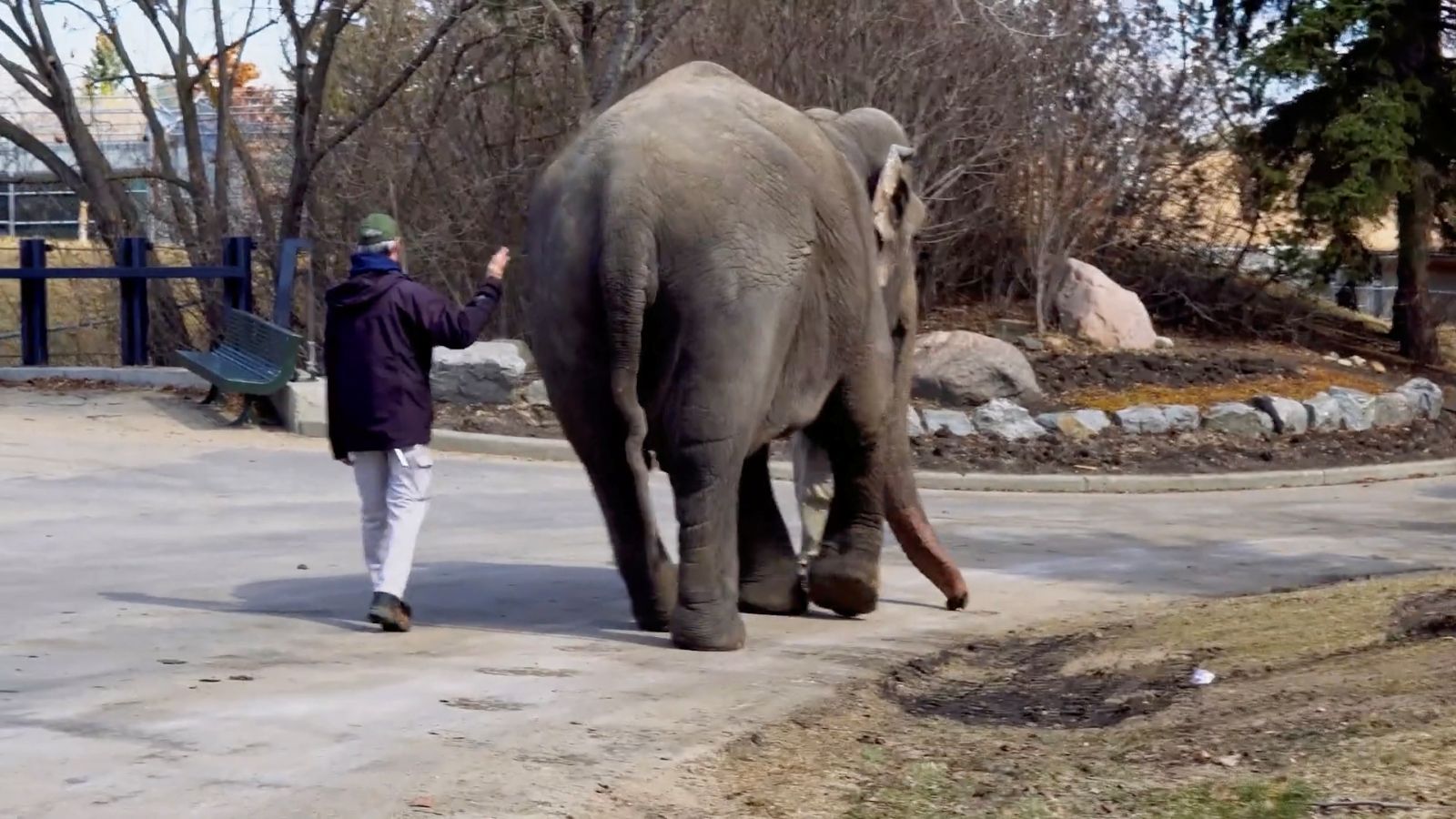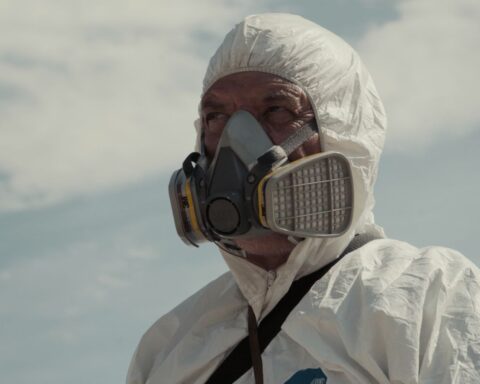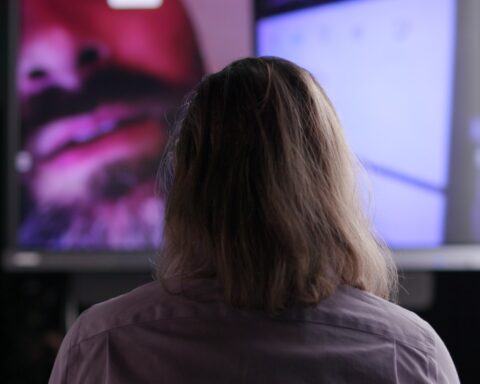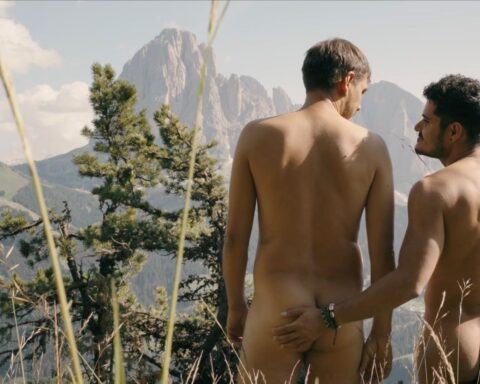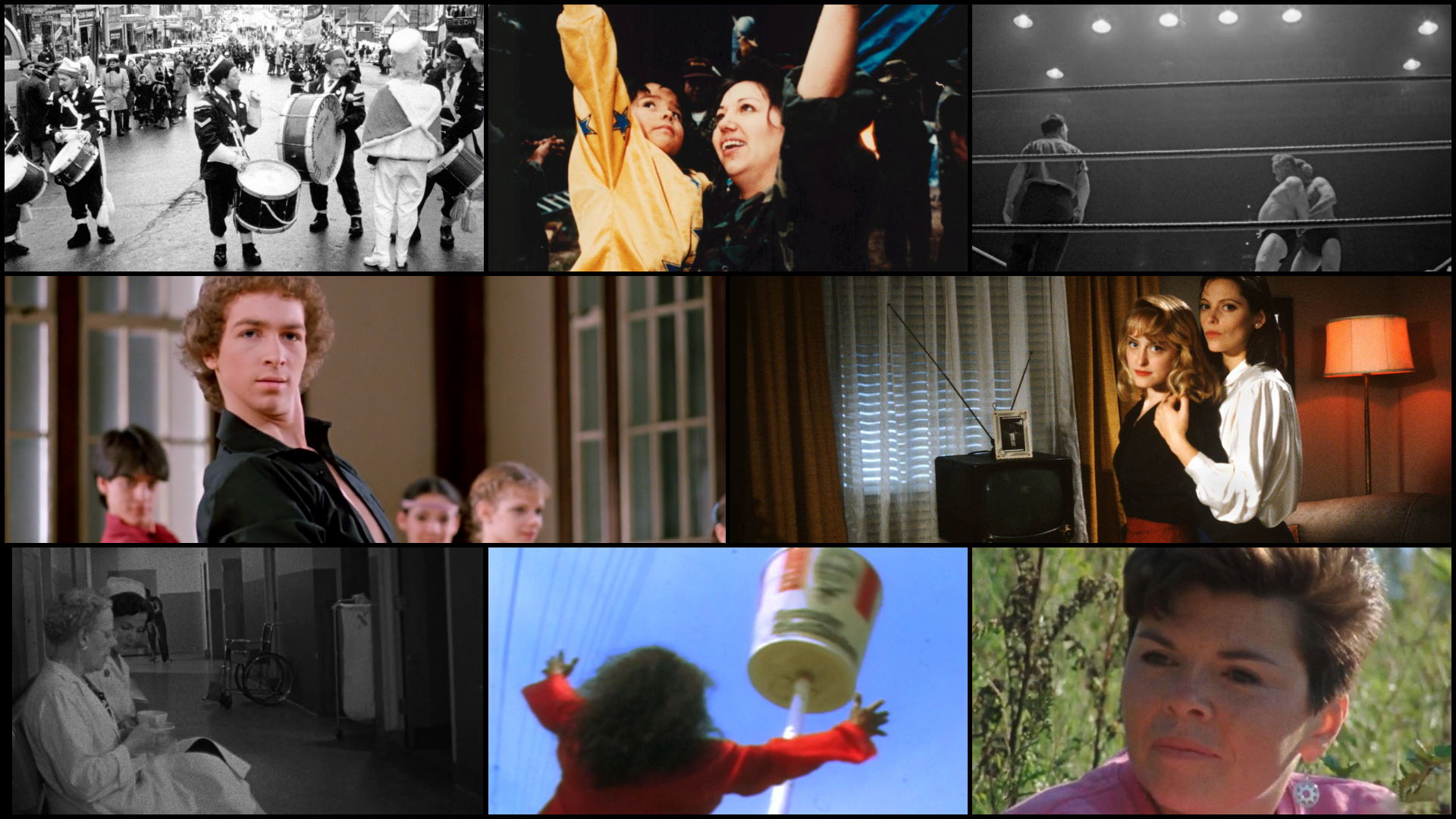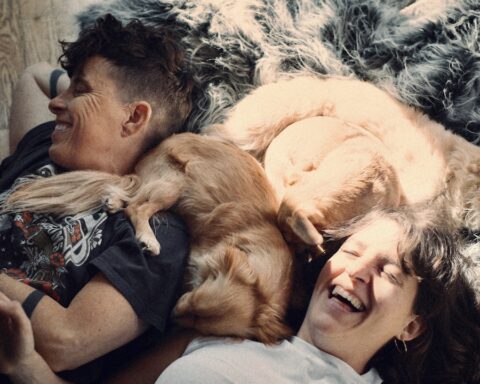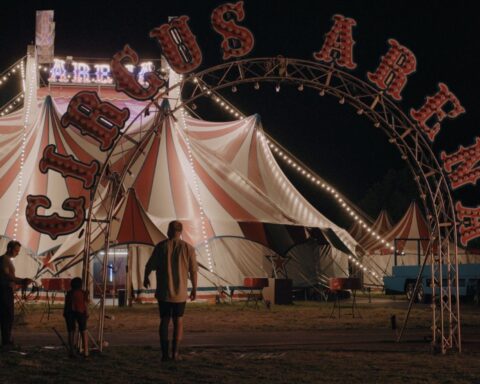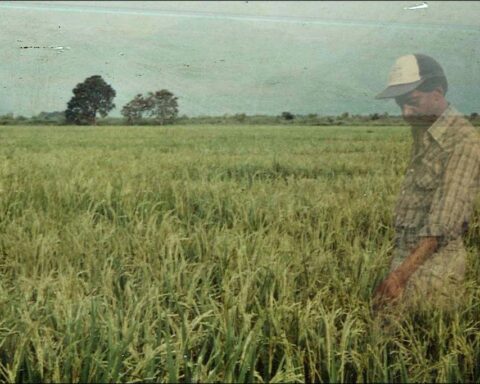It’s not every day that a legal threat means good news. For Lucy: The Stolen Lives of Elephants director Fern Levitt, getting word that African Lion Safari might take legal action if she went ahead with film’s release marks a source of pride.
“I was actually very happy when I heard that,” Levitt tells POV via Zoom. “I didn’t go into this without my eyes wide open. I knew that these zoos were going to be upset that I was exposing them and that I was exposing their false narratives.” The film opens in theatres this Friday.
Levitt says whether people look at animals in cages or gaze in awe as they roam past them in staged drive-bys, the zoo industry thrives on a lucrative illusion of freedom.
“I knew that it was an illusion,” says Levitt. “We all got a letter from [African Lion Safari’s] lawyers threatening to sue, not just me and our production company and our funders, which is the CBC. I have to give credit to the CBC because they went into this knowing perfectly well that they probably would get sued for this, but did it anyhow.”
Lucy: The Stolen Lives of Elephants makes an important animal rights case by focusing on the plight of Lucy, a 50-year-old Sri Lankan elephant who is a main attraction at the Edmonton Valley Zoo. That the Cambridge, Ontario-based African Lion Safari wields its litigious muscle over a doc starring an Edmonton elephant speaks to the eye-opening, gut-wrenching, and utterly persuasive material that Levitt presents in her call-to-arms for animal rights. The documentary takes audiences to zoos around the world, including Edmonton and Cambridge, to show firsthand the cruelty that animals experience in captivity.
The extra publicity courtesy of African Lion Safari gives Lucy’s cause a boost. The veteran Levitt comes to the documentary with a cause close to her heart, having tackled the plight of show animals in her acclaimed 2016 film Sled Dogs, which won two prizes at the Whistler Film Festival including Best Documentary.
Levitt says she got the inspiration for Sled Dogs when she suggested to her husband that they go dog sledding after she wrapped a draining shoot for a CBC Holocaust doc filming gas chambers in concentration camps. “We went dog sledding a couple of hours from Toronto in Huntsville, and it was like going from one concentration camp right into another,” she remembers. “I saw the way the dogs lived chained in plastic barrels. We were so upset with what we saw and with the treatment of these dogs that we ended up taking a dog home.”
The director says the experience helped bring a turning after years of taking her kids to zoos, swimming with animals, and enjoying the illusion that films like Sled Dogs and Lucy debunk. “I never asked the questions and I could see my dog’s suffering and the suffering of the animals, and that’s when I changed,” says Levitt. “I am lucky I had a platform to expose this because we all get caught up. These dogs are different and therefore we can treat them differently.”
Levitt says that Sled Dogs was going to be a one-off in her filmography, but Lucy’s story proves too compelling to deny. “After I made Sled Dogs, I thought, ‘I’m not doing this again because my heart can’t take it,’” she notes. “Then someone sent me a picture of Lucy. I took a look at her and I saw her in this cement compartment with these painted palm trees. And I thought, ‘This is Canada!’ We know better now the science has shown that female elephants are with their herd throughout their lives. She’s basically been alone.”
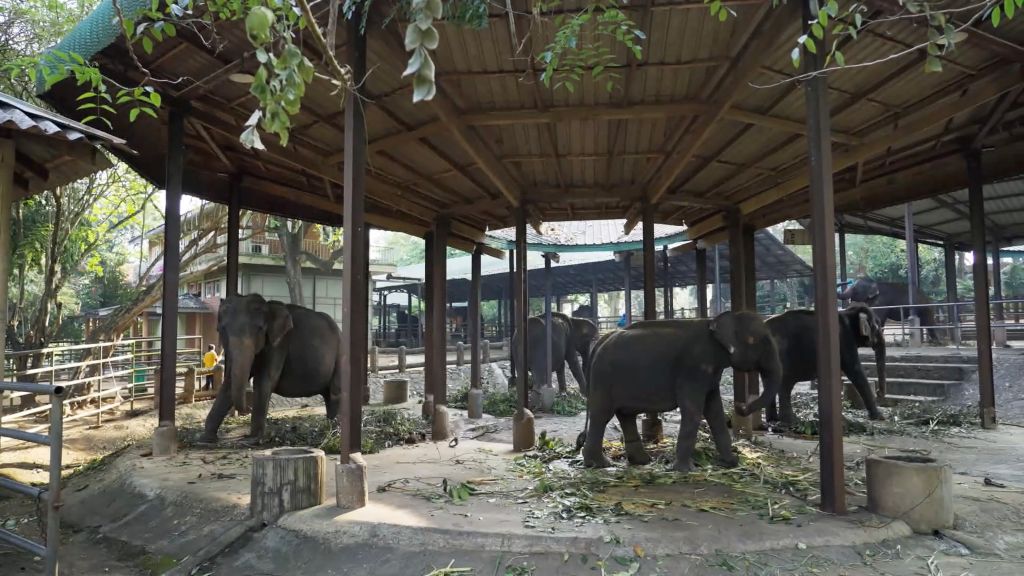
Lucy: The Stolen Lives of Elephants ensures that audiences feel this same heartache over the sight of the grand elephant in isolation at the Edmonton zoo. Shots of Lucy trudging through the snow illustrate how the Canadian climate doesn’t suit a South Asian elephant. Vérité footage shows her handlers examining sores and observing behavioural signs of distress.
The film draws upon the chorus of voices advocating for Lucy’s release from captivity. Among them is Mary-Ann Holm, president and co-founder of the Lucy Edmonton Advocates Project (LEAP). Holm strikes a compelling figure in the film as she speaks up for Lucy’s rights and attends protests with an oxygen tank after her immunocompromised system contracted COVID-19 and left her with damaged lungs. She vows to fight for Lucy until her last dying breath.
Meanwhile, experts like elephant ethologist Dr. Joyce Poole, co-founder and scientific director of advocacy group Elephant Voices, speak to the larger environmental concern related to removing elephants from the wild. Lucy goes outside the zoos’ walls to show elephants on reserves where they have space to roam, a stark contrast to the images of captivity.
“Elephants are travelling 30 to 60 kilometers a day [in the wild] and constantly eating various plants. As food goes through their bodies and they eliminate, fertilized seeds are then replanted in the wild and new vegetation grows,” explains Levitt. “When we take these animals out of the wild, as Dr. Joyce Poole said, forests may die. So not only is it dire for the elephants, but it’s dire for our ecosystem and therefore it’s dire for us humans as well.”
In addition to providing context and information for audiences, Levitt notes that the film’s talking heads offer a safeguard against the zoos’ criticisms, as they can’t debunk their expertise. “I always look for the experts because the zoos may question me—I’m just a filmmaker—but it’s more difficult to question scientists who’ve studied elephant behaviour for decades.”
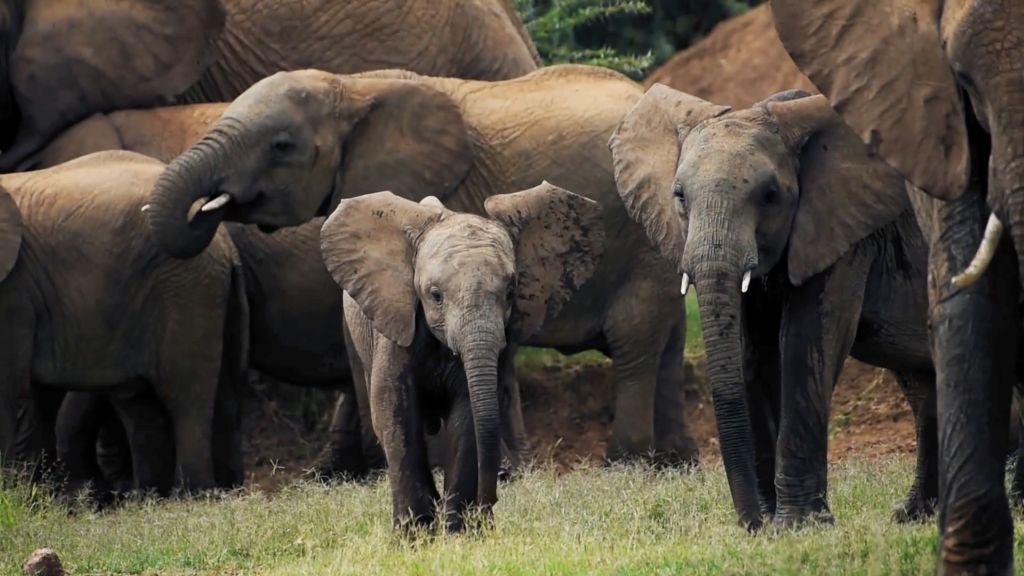
The film’s global scope plays these images of containment and freedom off one another as the fight for Lucy’s release amplifies. Other participants, like Anika Sleem, director and trustee of animal advocacy group Free the Wild, tells how her team helped harness support for Lucy’s cause by catching Cher’s attention via Twitter. The singer’s support gave the fight considerable momentum.
“They were the ones that were able to convince the Edmonton Valley Zoo for the first time to bring objective experts who both agreed that she needed to go,” explains Levitt on working with Free the Wild. “And shockingly, or maybe not shockingly, the zoo went with the one so-called expert [who advised the zoo to avoid moving Lucy for health reasons] and went against the recommendations from the other two experts to keep her there, which I think they plan to do all along.”
That façade of an examination illustrates the challenges that the animal rights activists face. Change doesn’t come easily when zoos rely on the narratives of happy and healthy animals to keep the cash flowing while Lucy’s health visibly declines.
Part of keeping that illusion, moreover, means that nearly all zoos declined Levitt’s request to allow her to film in their facilities. “They all said no, except for the Miami Zoo, which I was grateful for because I wanted to ask the questions and hear the answer,” says Levitt, who notes that her team invited participation from zoos across Canada and the USA to share their side of the story.
What that means, however, is that much of Lucy’s images come thanks to clandestine footage. Hidden cameras capture the full scope of the activities performed for the viewing delight of audiences—all of whom have their phone cameras out, anyways—while Levitt’s voice appears via hidden microphones as she asks casual questions to glean information from some surprisingly forthcoming parties.

“We have the ability with these very small cameras to go in there and film and they don’t know about that,” explains Levitt. “I was wearing a mic that they didn’t see. So I was able to ask the questions and get the footage without them knowing it. And luckily we have the right to do that because that’s what documentaries do: expose truths that are kept hidden.”
Lots of archival footage builds on previous groups’ efforts to expose animal cruelty. Elephant trainers, for example, use metal hooks to break the animals by piercing and tugging them into submission with painful spikes. Levitt’s hidden cameras capture those same tools in the hands of trainers in respected facilities.
“Other organizations that fight for animals have gone undercover and exposed the beating of that elephant in that so-called sanctuary,” says Levitt. “You could see what they do behind the scenes. I was also very lucky to connect with these organizations and get the footage from them. I wouldn’t be able to show that unless other organizations had the courage to do that.”
That courage is one reason why Lucy: The Stolen Lives of Elephants and other animal rights docs like The Walrus and the Whistleblower are adding to the conversation in the Senate as Canadian legislators pass efforts like Bill S-15, aka the Jane Goodall Bill, to restrict the breeding of large animals like elephants in captivity. Those Senate hearings tipped off African Lion Safari to the documentary when Levitt offered her footage as evidence to support the Bill.
Levitt says that having her film in conversation with change makers is an even big honour than the legal threat. “You can take my film and use it as a way of showing the members the cruelty of keeping these elephants and zoos,” she recalls advising the aid of Senator Marty Klyne, who sponsored the Bill. “Some of the people in my film, who had worked with elephants before and witnessed the cruelty, made statements to the Senate of what they observed. It all came together and I was really honored and proud to be working with the Canadian Senate to bring this bill forward.”
Levitt adds that changes like Bill S-15 offer reasons for animal lovers to vote smartly as the Liberals passed Bill S-203, aka the Free Willy Act, making Canada one of only five countries to ban the capture, breeding, and containment of whales, dolphins, and porpoises for non-scientific purposes. Levitt hopes that her own change in perspective can inspire others to consider non-human animals like Lucy as beings with their own rights, rather than merely as objects for humans’ amusement.
“I wanted people to learn what I have learned so that things change,” says Levitt. “Blackfish was a brilliant film that made us aware of horrible it is and how cruel it is by keeping dolphins and whales in captivity and goes against all the natural needs. This film shows us the truth of what it does to these beautiful animals by keeping them in these spaces and in these places they don’t belong in.”




